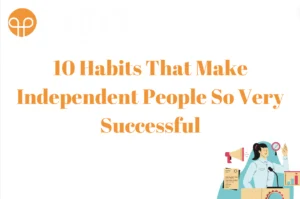Failure is not a pleasant thing to go through, however, it can be used as a catalyst to fuel you into success as it enables you to become better.
Understanding the concept of accepting your failures is the very first fundamental principle to overcoming your failures and succeeding in your endeavors.
Here on this page, we share some tips on how to transform your failures into motivation that fuels you to succeed.
But what is failure and success?
Failure is a situation of not achieving what you wanted and it contravenes your targets although failures differ from one person to the other or it is peculiar to everybody.
Success on the other hand is when you attain your goals or targets and the results or outcome of something is what you expected.
People may define success based on certain beliefs whilst some define it on things like happiness, good health, wealth, and assets, among others.
This article looks at success in your own professional life or career and your personal life.
Depending on your set targets and visions in life, you may encounter various forms of successes and failures and some of the failures can be getting a contract terminated, not getting selected into a team, having a bad interview, poor results after taking a promotional exam, or not meeting deadlines.
Failure often leads to success because failure provides the opportunity to try and figure out what doesn’t work in order to figure out what does. Although failure may be painful at first, success is important because it brings many benefits.
Change And Create New Things
Lack of opportunities to evaluate what has been achieved or what is better failure than success.
By improving your critical thinking and analytical skills, you will be able to test, change and evaluate different options for future planning. You may want to consider a decision that you don’t think will be the right one on your first try.
Many famous entrepreneurs and businesses have used failure as inspiration to create their original ideas, such as mobile phones, original media platforms, and virtual reality gaming systems.
For example, imagine trying to find your way through a blind maze.
Once you reach the exit, you take a wrong turn, but you eventually lead the way to the exit. Likewise, in life, failure can lead you to great things.
Look for opportunities to build resilience and strength. People who experience stress are more confident, determined, and resilient than people who do not experience stress.
It’s not that this is the end; on the contrary, a new beginning can be found. For example, you are interviewing for a promotion and you are disappointed when you learn that another colleague has been selected for the position.
By leveraging your past experiences to assess your skills, abilities, and talents, you can focus on developing your skills and gain the confidence to achieve your next promotion.
On the other hand, your boss may recognize how you handled the situation and create a friendly environment for you.
You Can Try Again
By trying again and again, failure can turn into victory. Challenges can bring determination and focus, especially as you get closer to your goals. You may achieve your goal on your second try or multiple attempts. Even if it doesn’t seem to be working, believe in the change that comes with failure.
It’s natural to learn from every attempt, so don’t hesitate to try again even if you fail.
Gaining Knowledge Is An Opportunity For Growth And Advancement.
Experiencing problems or failures leads to new knowledge, skills, and strategies. For example, you might be involved in a technology project that encounters problems on the first day after taking over, and your team can assess the situation and find ways to avoid the same problems in the future.
When you encounter a project problem again, you may be stronger than your colleagues who successfully completed the project.
Dealing with professional setbacks requires effort, acknowledging the situation, and taking steps to move forward.
Below are some suggestions on how to transform failure into achievement:
Consider failure as a resource. Think about failure differently, view it as a way to understand what is effective and what is not. Seeing failure as a chance to be creative instead of a barrier to success can assist you in embracing and leveraging it for your benefit.
Distinguish between failing and failure. Failing and failure are often seen as distinct ideas, where failing is attempting something and discovering it doesn’t work, while failure is quitting and not persevering. Viewing them as distinct concepts can assist in maintaining motivation towards achieving success.
Explain your personal definition of success. Understanding your goals and how you gauge achievement can influence your perspective on failure and how to overcome it.
Maintain a professional demeanor: How you respond to a failure or mistake at work can be more important than the error itself, therefore, it is important to maintain a professional attitude and demonstrate emotional intelligence. Stay calm, be aware and empathetic towards the situation.
Accept accountability: Taking responsibility for your mistakes is often a sign of maturity and professionalism, which are valuable traits for achieving success.
Believe in yourself and remain dedicated: Although others can support you in reaching success and overcoming failure, the majority of the effort and achievements stem from your own internal drive.
Maintain belief in your skills and persevere in your efforts to reach your career aspirations, mapping out the necessary steps and actions needed for success.
Keep moving ahead instead of focusing on the past.: Think about other possibilities and make a move to deal with the failure you encountered.
Focusing on fixing an error instead of obsessing over it can often drive you to succeed more quickly than constantly pondering on the mistake.
Pause for a while before establishing fresh objectives: Taking a break after facing a setback is acceptable and can provide insight into the valuable lessons to be learned from the experience.
Once finished, contemplate developing a strategy and establishing clear objectives, arranging yourself and concentrating on the subsequent stages to move closer to reaching your initial goal or a fresh triumph.











